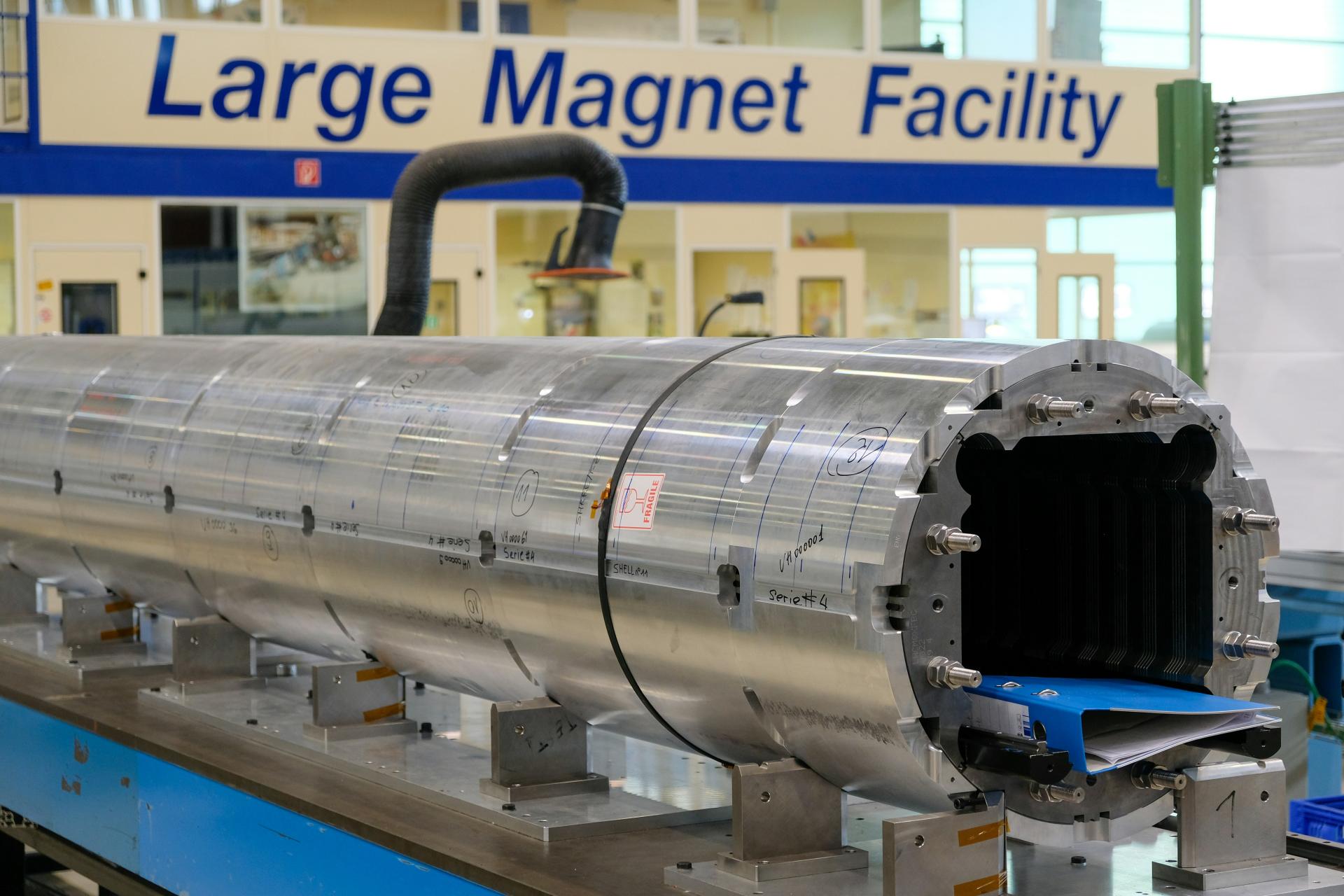Currently, 18 Latvian researchers and doctoral students work at CERN, of which 14 are researchers from Riga Technical University (RTU).
Research for CERN Latvian scientists is possible because in 2021 Latvia became an associate member state of CERN. A community of particle physicists and accelerator technology specialists has been established in Latvia, which continues to develop its scientific capacity. The country's sustainable cooperation with CERN is ensured by the involvement of future scientists in CERN's work. In order to implement this, a few years ago, RTU and the University of Latvia (UL) jointly established the doctoral study program "Particle Physics and Accelerator Technologies", whose students have the opportunity to develop their dissertations at CERN. Currently, after two years of work in Switzerland, the first doctoral students have returned to Latvia, who, according to the conditions of the program, must spend the last year of their doctoral studies in Latvia. The studies give young researchers the opportunity not to lose their connection with Latvia and to use the knowledge acquired during the doctoral studies in the development of Latvian science.
The government of Latvia has decided that the country should become a full member of CERN in the coming years, so that scientists and businessmen have even wider opportunities for cooperation with CERN.
Over the years, CERN has become a globally influential science center where new physics phenomena are discovered and where the technologies created are used for the benefit of society. CERN scientists search for answers to questions about the secrets of the universe by studying the properties of the smallest components of the universe - elementary particles. They are helped by a very complex scientific device - the 27-kilometer-long Large Hadron Collider (LHC), which sends beams of protons at each other at enormous speeds, causing collisions of these particles, where the Big Bang is simulated at very high energy and in measurements scientists try to discover new physics phenomena. Latvian scientists and students - particle physicists and engineers - work in the LCH CMS (Compact Muon Solenoid) experiment, both by conducting basic science research and also by participating in the development of new detector technologies.
Although CERN was primarily created for fundamental research, there have also been discoveries unrelated to particle physics that have had a significant impact on the everyday life of the general public. For example, in 1989, a British scientist working at CERN, Timothy John Berners-Lee, created the World Wide Web data transfer protocol so that CERN scientists could exchange information more smoothly. CERN's characteristic accelerator technologies have also found wider use in the treatment and diagnosis of diseases.
Latvia, in cooperation with CERN, has started an ambitious project to create an innovative particle therapy center in the Baltics, where it would be possible to treat oncological diseases more effectively with the latest radiation methods.
Photo: Unsplash.com
